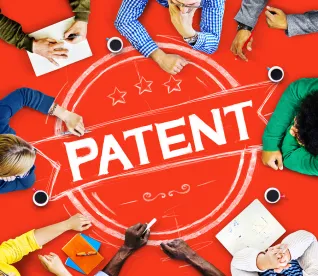Following a string of denials, the PTAB has recently instituted IPR against several pharmaceutical patents where the petitions were filed by entities linked to hedge funds. Prior to these recent institution decisions, there were open questions of whether the PTAB would deny such petitions on the basis of abuse of the IPR process. See “PTAB Requests Additional Briefing on Hedge Fund IPR Questions: A Decision May Be Near”.
PTAB Does Not Find Sufficient Evidence To Establish Abuse of Process
In the first decision to institute in IPR2015-0990, the PTAB answered these open questions in the negative, finding that it was not an abuse of process for an entity linked to a hedge fund to turn to the IPR process for attacking validity. Specifically, the PTAB stated in this decision as follows:
“We take no position on the merits of short-selling as an investment strategy and note only that Patent Owner does not contend that such a strategy is illegal or unregulated. The purposes of the America Invents Act (“AIA”) are not limited to providing a less costly alternative to court proceedings. Another purpose of the AIA is to encourage the filing of legitimate patentability challenges in an effort to further improve patent quality. See In re Cuozzo Speed Technologies, LLC, 793 F.3d 1297, 1300 (Fed. Cir. 2015) (“Congress created IPRs as a ‘new post-grant review procedure’ that would provide ‘a more efficient and streamlined patent system that will improve patent quality and limit unnecessary and counterproductive litigation costs.’”) (quoting H.R. Rep. No. 112–98, pt. 1, at 40, 45 (2011), 2011 U.S.C.C.A.N. 67; see also 77 Fed. Reg. 48,680 (Aug. 14, 2012) (codified at 37 C.F.R. §§ 42.100 et seq.)); see also Coalition For Affordable Drugs VI, LLC, v. Celgene Corp., Case IPR2015-01092 (PTAB Sept. 25, 2015) (Paper 19) (denying a motion for sanctions that alleges abuse of the IPR process).”
The PTAB further stated:
“Here, Patent Owner does not allege that Petitioner filed a non-meritorious patentability challenge that amounts to abuse. Prelim. Resp. 44−46; see also, Paper 21 (“[T]he merits (if any) of the IPR are irrelevant, because an improper purpose cannot be cured by arguing a potentially proper one, i.e., any IPR might be said to touch upon patent quality.”). As discussed herein, we find the Petition raises challenges having a reasonable likelihood of prevailing. Accordingly, based on the record before us, we decline to deny the Petition for abuse of process under our rules.”
PTAB Declines to Exercise Discretion Under 325(d) To Deny Based On Prior Proceedings With Similar Arguments
The Patent Owner also argued that similar arguments had already been addressed in the prosecution history, but the PTAB was not convinced. Instead, the PTAB noted that one reference in the petition had not been considered by the Examiner and was distinct from the considered prior art.
Shifting Strategies Of Hedge Fund Petitioners
A large number of hedge fund-linked petitions remain pending and have yet to receive institution decisions. These recent decisions of the PTAB illustrate that it may require specific evidence to support abuse of process arguments as a basis for denial of institution. However, with limited discovery available, developing such evidence may be challenging for patent owners in the IPR process.
For this reason, some have turned to proceedings outside IPR to address hedge fund IPR petitions, such as district court litigation. In Allergan v. Ferrum Ferro Capital (CD Cal.), in response to charges of abuse and extortion, the IPR petitioner has stated in a filing that it “is prepared to seek FDA approval via a Paragraph III ANDA filing to produce and market a generic brimonidine tartrate/timolol maleate ophthalmic solution with a Manufacturing Parter (“CMP”) upon the invalidation of the Combigan Orange Book-listed patents.” Litigation may allow for greater discovery, but it remains unclear whether evidence will be discovered that can help defeat the petitions being filed before the USPTO.




 />i
/>i
